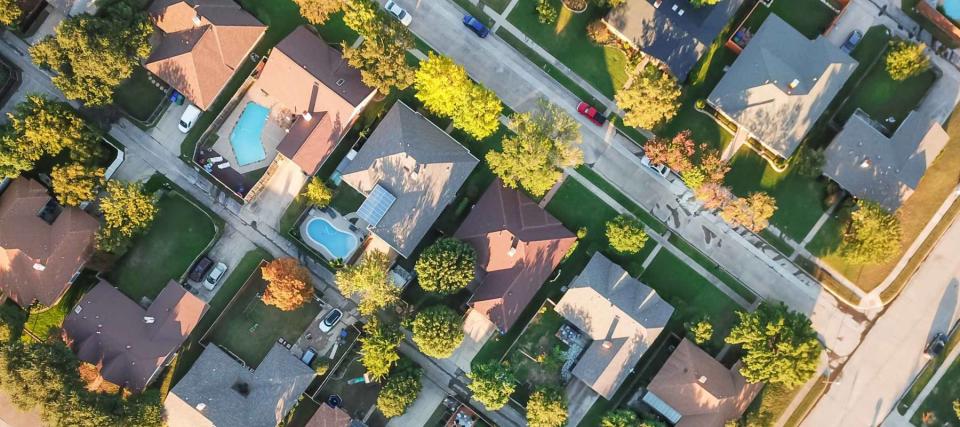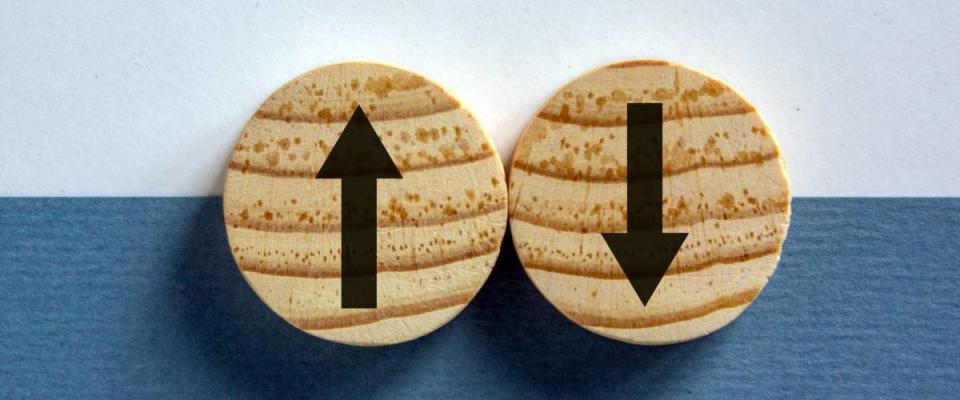Mortgage rates hold steady as the omicron variant raises new COVID questions

Mortgage rates, which experts are predicting will follow a gentle trend upward, have taken a pause, a widely followed survey shows.
Economic, political and coronavirus developments — including the path of the worrisome new omicron variant — are helping to keep borrowing costs cheap, for now.
The average rate on America’s most popular home loan held steady last week, giving shoppers and homeowners looking to refinance into lower interest rates an early gift this holiday season.
30-year fixed mortgages rates

The average interest rate on a 30-year fixed rate mortgage last week was 3.10%, unchanged from the previous week, mortgage giant Freddie Mac reported on Wednesday.
A year ago at this time, the 30-year rate averaged 2.72%.
Despite recent drifts higher, mortgage rates "remain incredibly low" by pre-pandemic standards, says Peter Warden, editor of The Mortgage Reports.
Warden says the course of the new COVID-19 omicron variant will determine where rates go from here.
"I’d expect low mortgage rates to last — and lower mortgage rates to be the short-term trend — at least until scientists better understand omicron’s likely impact on health and the economy," he writes. "And that might take weeks."
15-year fixed mortgage rates
The average 15-year fixed-rate mortgage rose to 2.42%, compared to a week ago when it averaged 2.39%, Freddie Mac says.
Many homeowners use these shorter-term loans for refinancing. While going from a 30-year to 15-year loan could result in a higher monthly payment, interest costs will be greatly reduced over the lifetime of the loan.
Today’s 15-year rate is up from last year at this time, when the average was 2.28%. So if a refi is in your future, this could be a good time to lock a still-historically cheap loan before rates go even higher.
And remember, Freddie Mac's averages are just that: averages. Some lenders are currently offering 15-year refinance loans at 2% or lower.
5-year adjustable mortgage rates
Rates on five-year adjustable-rate mortgages fell last week to an average 2.47%, down slightly from the previous week's 2.49%. A year ago, this loan type was averaging a much steeper 3.16%.
The rates on these mortgages — known as ARMs — can change after a period of time that’s determined at the start of the loan. Homeowners with 5/1 ARMs, for example, enjoy a five-year fixed interest period followed by a rate adjustment every (one) year after that.
If you currently have an adjustable-rate mortgage, it could be time to consider refinancing into a no-surprises fixed rate, especially given the general consensus among housing experts that mortgage rates will be higher next year.
Rates are expected to rise

Financial markets tumbled Friday on news of the COVID omicron variant.
Mortgage rates follow the yield, or interest, on the U.S. Treasury's 10-year note, which has risen in recent weeks on stronger economic indicators and the Federal Reserve’s plans to pull back on its pandemic-era policies that have kept borrowing costs low.
But the yield plunged below 1.5% on Friday as markets were shaken by reports about the potentially more contagious omicron variant. Mortgage News Daily reports 30-year mortgage rates dipped on Friday to an average 3.24%, from 3.29% before Thanksgiving.
Experts are predicting higher rates throughout 2022. Danielle Hale, chief economist with Realtor.com, says borrowers should expect a "continued gradual rise" in rates that may cause some borrowers to rule out refinancing.
“While the number of homeowners looking to refinance will be lower as rates rise, some will still be able to reduce their monthly payments through a refinance, and anyone considering should do so sooner rather than later," she says.
Says Joel Kan, chief forecaster for the Mortgage Bankers Association: “Borrowers continue to lock in mortgages in anticipation of higher rates in the future.
How to lock an ultra-low rate

If you have a little time on your hands around the holidays, you may want to ponder the idea of refinancing your mortgage, assuming your current rate is higher than what lenders are quoting today.
A recent study found almost half the homeowners who refinanced between April 2020 and April 2021 were able to cut their monthly mortgage payments by $300 or more.
If you think you could save with a refi — or if you’re buying a home — be sure to compare rates from multiple lenders. Studies have shown that gathering quotes from five or more lenders can earn you the best deal on a mortgage.
The lowest rates typically go to borrowers with the strongest credit scores, so find out if yours is in the 700s, or the enviable 800s. Today, you can easily check your credit score for free.
If your score needs work because you — like countless others — racked up high-interest debt during the pandemic, you may want to consider rolling balances into a debt consolidation loan. You'll reduce the amount of interest you pay, and coupld wipe out your debt faster.
But refinancing may not work for you right now. In that case, explore other ways to cut the cost of homeownership. Gather quotes from several home insurers to see if you might reduce your homeowners insurance bills.
This article provides information only and should not be construed as advice. It is provided without warranty of any kind.

